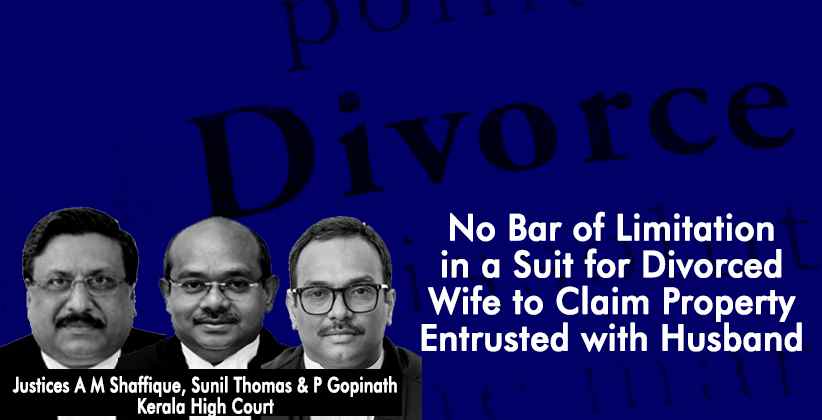An appeal was recently filed in the High Court of Kerala, against the Order of Family Court, Thrissur involving the question that whether trust created by a wife entrusting her property to her husband gets extinguished after the dissolution of marriage and whether she can initiate proceedings invoking section 10 of the Limitation Act, 1963, without any limitation of time.
The full bench discussed the appeal at length and thereby the bench agreed with the law laid down in Chacko v. Annamma (1993 (1) KLT 675) and the bench also upheld the view expressed in Bindu K.P. v. Surendran C.K. [2018 (2) KHC 1].
The bench also propounded the settled law and stated that when the wife entrusts with the husband any property belonging to her, a trust is created and the husband is bound to return the same to his wife. If the same is not returned, the wife has a right to demand the same by filing a suit or as in the present case, file an application before the Family Court or take other necessary steps under the relevant statutes in force.
The bench also examined the eventualities mentioned in Sec. 77 of Indian Trust Act, 1882 to decide once a trust is created, how it gets extinguished, or whether it continues to operate or not.
The bench highlighted the case of ornaments by stating, Wherein ornaments are given in the form of dowry, definitely, a statutory trust is created. Even otherwise, ifthe ornaments owned by the wife do not form part of the dowry and if there is an entrustment of gold ornaments by the wife to the husband or his parents, a trust gets created, in which event, the trustee or trustees, as the case may be, are liable to return the same and there is no limitation for claiming the same by the wife/divorced wife.
A full bench of the Kerala High Court hence held that even after the dissolution of the marriage, deemed trust to hold properties has been created on the husband in the form of dowry.






